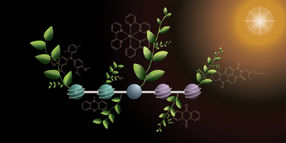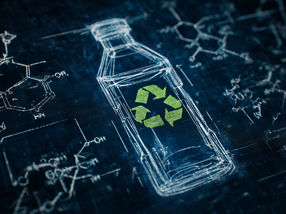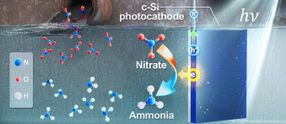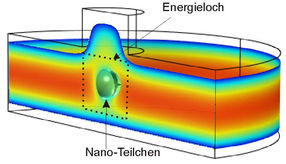New CU-Boulder technique could slash energy used to produce many plastics
Advertisement
A new material developed at the University of Colorado Boulder could radically reduce the energy needed to produce a wide variety of plastic products, from grocery bags and cling wrap to replacement hips and bulletproof vests.
Approximately 80 million metric tons of polyethylene is produced globally each year, making it the most common plastic in the world. An essential building block for manufacturing polyethylene is ethylene, which must be separated from a nearly identical chemical, ethane, before it can be captured and used.
The similarities between ethylene and ethane have made the purification process difficult and costly. Today, an extremely energy-intensive distillation technique is typically used.
In a new study recently published in Angewandte Chemie International Edition, a team of CU-Boulder researchers demonstrates that a new material made of molecules containing silver ions could vastly reduce the amount of energy needed to separate ethylene and ethane.
"This silver ion can be thought of as working like a hand," said Matthew Cowan, a CU-Boulder postdoctoral researcher and lead author of the paper. "This 'hand' can tell the difference between ethylene and ethane and it 'grabs' the ethylene out of the mixture. When all the ethylene has been grabbed, the ethane is removed and the hand releases the ethylene."
The new material - which has 13 times more separating power than previous materials used to separate ethylene and ethane - requires much less energy than the traditional distillation technique. In the United States alone, it now takes more than 46 million megawatt-hours of electricity a year to produce ethylene, about the same amount of energy produced by seven average-sized nuclear power plants.
Despite their potential for saving energy, silver ions can be more sensitive to contaminants, a problem that would have to be addressed before the technique could be commercially viable. The gas mixtures of ethylene and ethane are a byproduct from petroleum refineries, and they can contain impurities that could deactivate the silver ion "hands." But researchers are hopeful that the molecule they are packaging the silver ions into may be able to protect them from contaminants.
Most read news
Organizations
Other news from the department science

Get the chemical industry in your inbox
By submitting this form you agree that LUMITOS AG will send you the newsletter(s) selected above by email. Your data will not be passed on to third parties. Your data will be stored and processed in accordance with our data protection regulations. LUMITOS may contact you by email for the purpose of advertising or market and opinion surveys. You can revoke your consent at any time without giving reasons to LUMITOS AG, Ernst-Augustin-Str. 2, 12489 Berlin, Germany or by e-mail at revoke@lumitos.com with effect for the future. In addition, each email contains a link to unsubscribe from the corresponding newsletter.































































